The author set this prediction within the broader context of a possible return to the "Westphalian principle of sovereignty, which bars intervention in another state's domestic affairs." The article goes on to ask: "What If Trump were to repeat Nixon's rapprochement in reverse? President Nixon's handshake with Chairman Mao in 1972 may have decisively tilted the Cold War in America's favor, as it broke the Chinese away from the Soviet bloc. Today China, rather than Russia is America's principal strategic rival."
This Indian international affairs prognosis was based on Henry Kissinger's identification of the Peace of Westphalia principles as the key to Realpolitik and on implementation of his signature strategy from the past even if Kissinger was not mentioned. Kissinger's strategy was to ensure that Washington was closer to Beijing and to Moscow than either of the two was to one another, a relevant point again given Kissinger's reappearance on the political scene in recent days.
The question of Henry Kissinger's possible designation as a foreign policy adviser to President Donald Trump and specifically as intermediary between Trump and Vladimir Putin for normalization of relations arose after the 93-year-old Kissinger gave a series of interviews to the German newspaper Bild and other media in the days before Christmas.
In the less serious media outlets, we heard about Kissinger's special rapport with Putin with whom, we are told, he has met often. These same gossips tell us that in Moscow Kissinger's expertise and experience are held in high regard. All of these glib statements are deeply flawed, however. They are more appropriate to society pages or People magazine than to serious discussion of where former Secretary of State Kissinger can and should fit into the evolving foreign policy team that President-elect Trump is assembling, and to what that foreign policy should reasonably resemble.
The superficial comments also ignore the record of Henry Kissinger's policy recommendations on Russia in the decades since the end of the Cold War, which place him squarely among those responsible for getting us into the confrontation with Russia that reached its climax under Barack Obama. And, these comments miss how the times and the challenges we face today are so very different from the late 1960s and early 1970s when Kissinger and Nixon made their very important changes to the architecture of international relations.
Real Positives
But there are some real positives in Henry Kissinger's emergence among Trump's advisers. Kissinger brings an aura of intellectual rigor to the Trump camp as America's best-known thinker and practitioner of the Realist School of international affairs, meaning a foreign policy based on national interest. That is a more accurate and less aggressive packaging than the "America First" slogan, which Donald Trump used during his electoral campaign, though the intent of both terms is identical.
Even Harvard Professor Ernest May, a severe critic of Kissinger over Vietnam War policies, wrote of him in letters published in The New York Times in 1994: "Mr. Kissinger's scholarly credentials and public stature give his name on the title page the quality of a Good Housekeeping Seal of Approval."
At the same time, beginning in the 1990s, Henry Kissinger modified his message of realism to accommodate the then-dominant American school of idealism, or values-based foreign policy. This mixed message resulted from Kissinger's defending himself from the ridicule of the triumphant neoconservatives who criticized his détente policies of the 1970s for seeking merely to manage relations with the Soviet Union when the overthrow of the "Evil Empire" was entirely possible, as later events had seemingly proven through the uncompromising "promotion of democracy" as practiced by Ronald Reagan.
Thus, the updated Kissinger line was that universal moral principles serve as the ultimate objective of foreign policy, but realism must guide the day-to-day management of international affairs. Lest this seem to be a neat division between tactics and strategy, the two become confused in Kissinger's public stance given that he always has placed primary emphasis on achieving a "balance of power" in the international community, which alone can keep the peace and safeguard the vital interests of all parties.
Thus, it would be fair to say that Kissinger is a realist who at times uses idealist vocabulary to meet the expectations of and to motivate the general public, which is unmoved by considerations of balance of power and realism.
Finally, in speaking of the gravitas that Kissinger may bring to the Trump team, he is correctly perceived as a champion of the art of diplomacy, which is another word for compromise and deal-making. It is precisely diplomacy that has been sorely lacking in the U.S. government in recent decades. Under both Republican and Democratic presidents, ideology has held sway at the State Department and in the White House.
Some Negatives
The most severe negative one can say about Kissinger and Russia goes back to the fateful year 1994. In 1993, Boris Yeltsin had made an important visit to Warsaw during which he withdrew all Russian objections to Poland's joining NATO. The clearly understood quid pro quo, which the Kremlin expected for this major concession to U.S. and Polish wishes, was that Russia be named next in line for membership in the club. Indeed, during 1994, the Clinton Administration was weighing that very possibility. At this point, in Congressional testimony, Henry Kissinger delivered strong objections and played a significant role in the defeat of Russia's candidacy.
We get a fairly good idea of Kissinger's reasoning back then in the passages relating to American policy on Russia in the last chapter of his 1994 master work Diplomacy. A realistic approach to Russia meant America had to look at the respective foreign policy interests and national traditions, and to pay less attention to domestic Russian politics and the personalities of its leaders.
Kissinger said this meant taking into account Russia's long tradition of expansionism, as evidenced by military bases in the former Soviet republics and interventionism in their "near abroad." And as if to drive a stake through the heart of unnecessary chumminess with Moscow, Kissinger reminded his readers that Russia had always stood apart from the Western world. It had no democratic traditions or familiarity with modern market economics. In his words, it did not partake of the Reformation, the Enlightenment, and the Age of Discovery.
Indeed, Kissinger's thinking about Russian history is so clear one might imagine he knows what he is talking about. The question is of key importance because the Realist School is built upon the assumption that one can accurately appraise the strengths of all players and that one has a solid knowledge of the history and traditions of the players. In this it distinguishes itself from idealism, with its focus on universal values and disinterest in regional knowledge.
From Kissinger's own academic career in studying European diplomacy in the Nineteenth Century, Russia should have been on his plate, given that the country was one of the three decisive players in the first half of the century (Holy Alliance) and one of the five or six decisive players in the second half of the century. However, that was manifestly not the case.
Kissinger is widely reputed to be a voracious reader. Yet, it is obvious that Russia has never and does not now figure among the topics he reads. In Diplomacy, for his analysis of Russia, he relied on the very dated Nineteenth Century classics of Russian history like Vasily Klyuchevsky that he read in translation during his graduate student days at Harvard.
Klyuchevsky is unquestionably a good starting point for students of Russian history. He was the father of the historiography that came down to Kissinger in the person of Michael Karpovich, the founder of Russian studies at Harvard. But his notion of Russia's manifest destiny of borders moving out across the Eurasian land mass was part of a Liberal and anti-tsarist historiography. By today's standards, reading Klyuchevsky has mainly curiosity value. To put the issue in terms closer to an American reader, it is as if Kissinger were using de Tocqueville as the key source for writing about contemporary America.
Among the main Twentieth Century works on Russia cited in Kissinger are those by his comrade in realism, George Kennan. Notwithstanding Kennan's generally high reputation in Washington, his choice of sources and interpretation of Russia is tendentious in ways that Kissinger was unable to judge, and that is why it is regrettable Kissinger did not read other sources.
Kissinger's argument in Diplomacy for the separateness of Russian history may be no more than the conventional wisdom of his times. He speaks of Russia as a paradox, an obvious allusion to Winston Churchill's witticism that Russia was "a riddle wrapped in an enigma." But then Churchill was not a serious scholar and Kissinger is assumed to be one. The notion of separateness is, in fact, misleading if not fallacious.
Kissinger's prescription for a policy vis-à-vis Russia after the Cold War assumed that "imperial expansionism" was the country's defining national tradition. But then the same was true of all the key world powers. Kissinger indulges in tired mystification of Russia drawing on the Nineteenth Century nationalist movement and writers such as Dostoevsky. Such smoke and mirrors writing would be seen as unduly psychological and irrelevant to foreign relations if someone served them up as a description of Germany, for instance. Thus, we read in Kissinger: "The paradox of Russian history lies in the continuing ambivalence between messianic drive and a pervasive sense of insecurity. In its ultimate aberration, this ambivalence generated a fear that, unless the empire expanded, it would implode."
It is rather sad to consider that one of America's great scholar-statesmen of the Twentieth Century was taken in by mystical tripe when formulating and implementing the nation's policies towards its chief nuclear adversary. This puts into question the validity of attention to history and local specifics, which Kissinger says are distinguishing features of realism versus idealism, which operates amid universalistic over-simplifications.
Russian Uniqueness?
Henry Kissinger's later writings offering foreign policy recommendations for the world at large and specific major countries in particular display the same wrong footing when dealing with Russia. His 2001 opus facetiously entitled Does America Need a Foreign Policy? is a case in point. Kissinger breaks the international community into regional groupings and Russia is placed among the "great powers of Asia."
Once again Kissinger tells us "Russia has always been sui generis - especially when compared with its European neighbors" - a fancy way of saying Russia is not like the others. His highlighting the "mystical" Russian Orthodox Church and autocracy suggests a trite approach to this complex nation. We hear again of Russia's "creeping expansionism" as a returning theme of Russian history.
Kissinger rightfully faults American policy to Russia for excessive personalization of relations at the expense of sober reflections on respective interests and institutions to drive and implement any rapprochement. But then he falls prey to personalization himself. He characterizes the then new Russian President Vladimir Putin as a KGB operative whose secret police background presupposed a strong national commitment: "It leads to a foreign policy comparable to that during the tsarist centuries, grounding popular support in a sense of Russian mission and seeking to dominate neighbors where they cannot be subjugated."
If this argumentation, this jumping to conclusions, were delivered by anyone other than Henry Kissinger, one might dismiss it offhandedly. What we have here is the soft underbelly of Realpolitik: realism can be only as useful as the expertise and judgment of its practitioner.
At the same time, Kissinger's bark was more fearsome than his bite. In his specific remarks on how America should conduct its foreign policy towards Russia, he urged moderation, continued readiness to assist the country with its transition to democracy and free markets, and attentiveness to Russia's voice in international forums.
Note especially his comment on prospective NATO expansion into the Baltic States, which Kissinger believed in 2001 would be provocative, saying it would put NATO forces within 30 miles of St. Petersburg, one of Russia's largest population centers. He correctly foresaw that "Advancing the NATO integrated command this close to key centers of Russia might mortgage the possibilities of relating Russia to the emerging world order as a constructive member."
But it is curious that in his 2001 book Kissinger was unable to offer any serious incentives for Russia to behave nobly. He derided even the watered down affiliation of Russia with NATO in the NATO-Russia Council. He believed it gave the Russians too much say and was "not the wisest solution."
Finally, he dropped all pretense at diplomatic niceties, telling his readers that "NATO is basically a military alliance, part of whose purpose is the protection of Europe against a reimperializing Russia. ... To couple NATO expansion with even partial Russian membership in NATO was, in a sense, merging two contradictory courses of action ... [As] Russia becomes a de facto NATO member, NATO ceases to be an alliance, or becomes a vague collective security instrument."
Rethinking the Group Think
Having participated actively in keeping Russia out of the security architecture of Europe, Kissinger became alarmed in recent years by the consequences of such exclusion as Russia and the U.S.-led West slid into mutual recriminations and confrontation. From this point on, Henry Kissinger began to play a clearly constructive role in the midst of each successive crisis in relations that threatened war.
The first case was in 2008-09 when bilateral relations hit bottom during and after the Russian-Georgian War. The second has come in 2013 to the present, when in the context of the developments in and around Ukraine, Russia and the U.S. became actively engaged in what is a proxy war, entailing as well economic and information wars.
For instance, in November 2014, Kissinger was one of the few prominent Westerners who dared question the prevailing narrative blaming Putin and Russia almost exclusively for the crisis in Ukraine. Kissinger said, in an interview with the German newsmagazine Der Spiegel, that the West was exaggerating the significance of the Crimean annexation given the peninsula's long historic ties to Russia.
"The annexation of Crimea was not a move toward global conquest," Kissinger said. "It was not Hitler moving into Czechoslovakia" as former Secretary of State Hillary Clinton and others suggested.
Kissinger noted that prior to the overthrow of Ukraine's elected President Viktor Yanukovych in February 2014, Putin had no intention getting involved in a crisis in Ukraine, saying:
"Putin spent tens of billions of dollars on the Winter Olympics in Sochi. The theme of the Olympics was that Russia is a progressive state tied to the West through its culture and, therefore, it presumably wants to be part of it. So it doesn't make any sense that a week after the close of the Olympics, Putin would take Crimea and start a war over Ukraine."Instead Kissinger argued that the West with its strategy of pulling Ukraine into the orbit of the European Union was responsible for the crisis by failing to understand Russian sensitivity over Ukraine and making the grave mistake of quickly pushing the confrontation beyond dialogue.
But Kissinger also faulted Putin for his reaction to the crisis. "This does not mean the Russian response was appropriate," Kissinger said.
Still, Kissinger told Der Spiegel, "a resumption of the Cold War would be a historic tragedy. If a conflict is avoidable, on a basis reflecting morality and security, one should try to avoid it. We have to remember that Russia is an important part of the international system, and therefore useful in solving all sorts of other crises, for example in the agreement on nuclear proliferation with Iran or over Syria. This has to have preference over a tactical escalation in a specific case."
Kissinger could well bring such a practical perspective to the incoming Trump administration and have the gravitas to force Official Washington to undertake a rethinking of its current Russia-bashing "group think."
Gilbert Doctorow is the European Coordinator of The American Committee for East West Accord Ltd. His latest book, Does Russia Have a Future? was published in August 20, 2015. Gilbert Doctorow, 2016
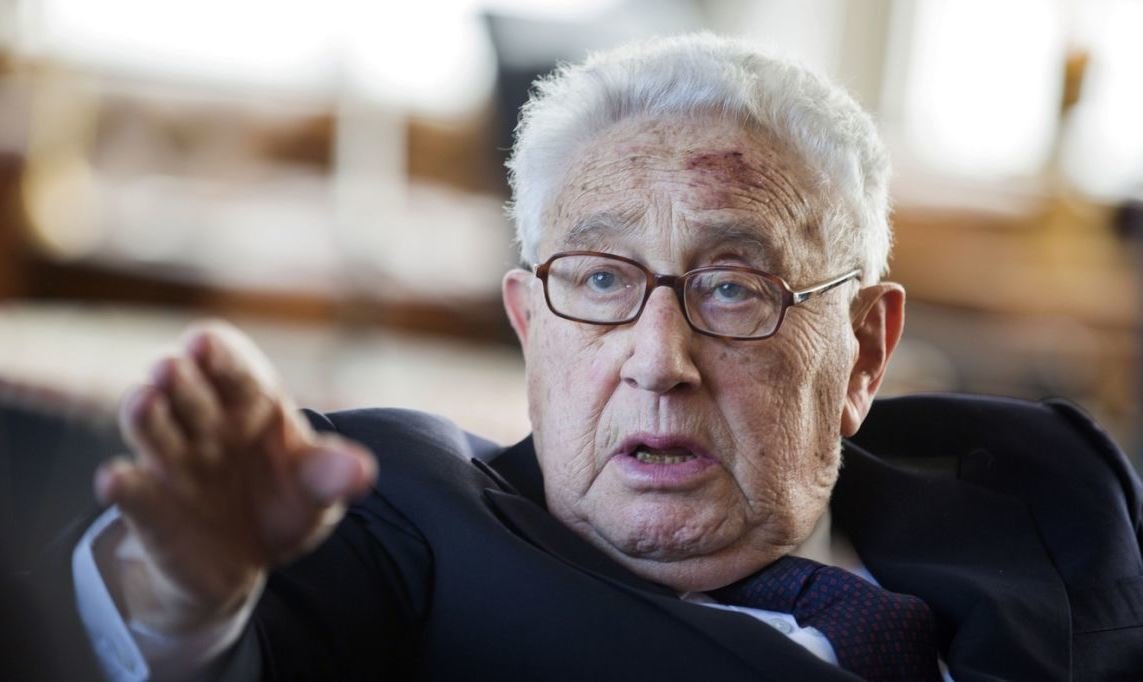
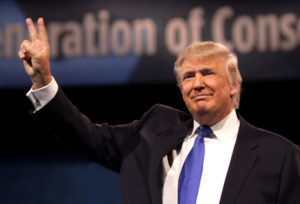
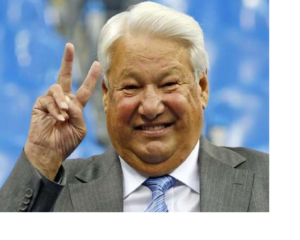
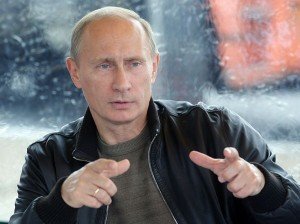
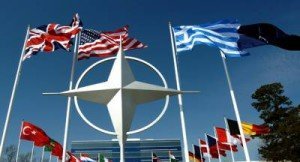



Comment: For more on Kissinger's recent emergence into the limelight: